Lavrov and Rubio Prep the Ground, Putin Brief Kim Jong-un, “We Will Not Withdraw Says Zelensky,” Orbán Named the Winner
Exclusive Intelligence Briefing: The Alaska Summit and the Fractured Frontlines of Power.
August 12, 2025.

As the Arctic winds sweep across Anchorage, so too does a seismic shift in global diplomacy, one that could redraw the future of Europe and redefine the balance of power. With just days to go before U.S. President Donald Trump meets Russian President Vladimir Putin on American soil, the international community is bracing for a high-stakes negotiation that may bypass traditional alliances altogether.
And in Budapest, Hungarian Prime Minister Viktor Orbán has delivered a chilling verdict: the war in Ukraine is already over, and Russia has won.
In a stark interview with the independent YouTube channel Patriot, Orbán dismissed the notion of an open-ended conflict, declaring:
“We are talking as if the war is still unfolding. It’s not. The Ukrainians lost. Russia won. The only question now is when the West finally admits it, and what kind of peace we’ll be left with.”
These words, delivered with cold precision, are more than political provocation. They are a calculated indictment of European policy, one that Orbán has long rejected. Since 2010, his government has maintained a pragmatic, often balanced alignment with Moscow, rooted in energy dependence and a vision of “national sovereignty” that puts Hungary at odds with Brussels.
While much of Europe continues to supply arms and political backing to Kyiv, Hungary refuses to send weapons, opposes further EU expansion to include Ukraine, and warns that integration would unleash economic disruption, particularly for its agricultural sector. Now, amid a fragile post-inflation recovery, Orbán sees the EU’s Ukraine stance as not only misguided but self-destructive.
“The West missed its chance to negotiate under Biden,” he said. “Now, as Trump prepares to meet Putin, Europe risks having its fate decided without it.”
Quoting a now-famous geopolitical maxim, he added: “If you’re not at the table, you’re on the menu.”
His refusal to endorse the EU’s latest joint statement on Ukraine, he explained, stemmed from what he called Europe’s “absurd and pathetic” posture a bloc shouting from the sidelines while two superpower leaders prepare to reshape the world order in a remote Alaskan city.
Read
Diplomacy or Delusion? Why the Trump-Putin Summit Won’t Stop the Next War
Moscow and Washington Align — Lavrov and Rubio Prep the Ground
Behind the scenes, diplomatic channels are heating up. Russian Foreign Minister Sergei Lavrov and U.S. Secretary of State Marco Rubio held a secure phone call to coordinate the agenda for Friday’s summit, according to the Russian Foreign Ministry. The discussion focused on establishing a “full and meaningful dialogue” with one overriding objective: a durable peace framework for Ukraine.
Yuri Ushakov, Putin’s foreign policy aide and former ambassador to Washington, confirmed the meeting’s structure and intent: the primary goal is to “find a path to lasting peace.” The White House has since verified that the summit will proceed as planned in Anchorage a symbolic choice, perhaps, for a conversation meant to occur outside the glare of European capitals.
Putin’s Diplomatic Outreach: A Signal to the World
Even before the Alaska talks, Putin has been projecting strength and alliance. In a rare but telling move, he personally called North Korean leader Kim Jong-un to brief him on the upcoming summit a gesture underscoring the deepening strategic axis between Moscow and Pyongyang.
The Kremlin stated that both leaders reaffirmed their “friendship, good-neighborliness, and comprehensive cooperation” under the Treaty on Comprehensive Strategic Partnership, signed in June 2024. Putin also extended congratulations on the 80th anniversary of Korea’s liberation from Japanese colonial rule a moment laden with historical resonance and ideological solidarity.
The message is clear: Russia is building a parallel diplomatic architecture, one that excludes the West but includes key and non-aligned powers.
Zelenskyy’s Defiant Stand: “We Will Not Withdraw from Donbas”
From Kyiv, President Volodymyr Zelenskyy responded with urgency and defiance. Speaking to journalists, he categorically ruled out any Ukrainian withdrawal from Donbas, the war-scarred eastern region encompassing Donetsk and Luhansk.
“If Russia consolidates control there,” Zelenskyy warned, “it will use it as a springboard for new invasions into Zaporizhzhia, Dnipropetrovsk, even Kharkiv.” He stressed that any peace deal negotiated without Kyiv’s involvement would be illegitimate.
In a call with Turkish President Recep Tayyip Erdoğan, Zelenskyy made it clear: “No decisions about Ukraine without Ukraine.”
He viewed Putin’s invitation to meet Trump on U.S. soil as a personal triumph for the Russian leader, one that lifts him from diplomatic isolation and could stall new American sanctions. “He’s being welcomed,” Zelenskyy said bitterly. “And we’re being sidelined.”
On the battlefield, he reported limited but concerning Russian advances small infantry units penetrating up to 10 kilometers in the east, lightly armed but mobile. Some have been killed or captured, he said, but Moscow is preparing larger offensives across three fronts: Zaporizhzhia, Pokrovskoye, and Novopavlovsk.
Zelenskyy also confirmed he had held talks with the Emir of Qatar, Sheikh Tamim bin Hamad Al Thani, seeking alternative diplomatic channels as traditional alliances appear to fracture.
Europe’s Last-Minute Huddle: Can the West Stay Relevant?
Aware of their exclusion, European leaders are scrambling to coordinate. Germany has organized a high-level virtual summit scheduled for tomorrow at 16:00 CET, uniting EU heads of state, Zelenskyy, Vice President J.D. Vance, and President Trump in a pre-summit consultation.
But the damage may already be done. Orbán’s rhetoric, Putin’s confidence, and Trump’s bilateral overture suggest a new era, one where great-power diplomacy happens in secret summits, not multilateral forums.
The Anchorage meeting may not end the war, but it could end the illusion that the West still controls the narrative.
This is not just a summit. It is a turning point, and the world is watching from the outside.
Thanks for reading! Subscribe



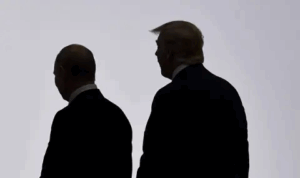
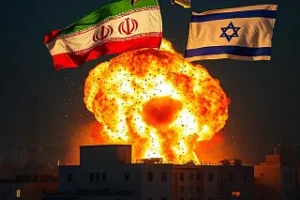
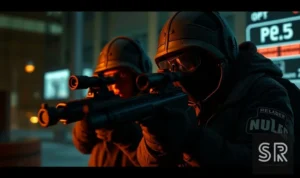
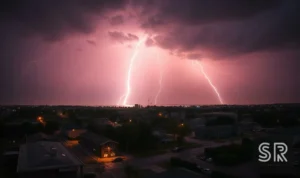
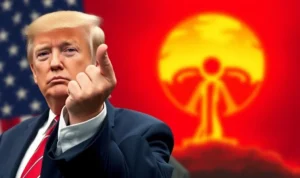
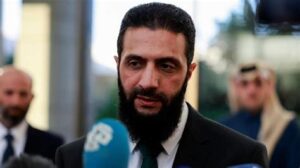
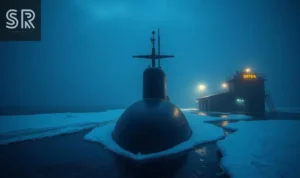
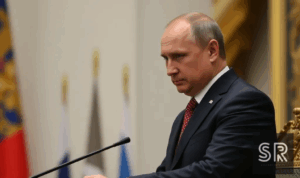
Post Comment